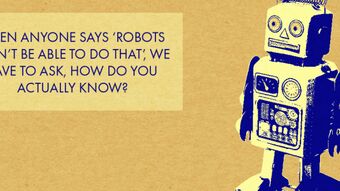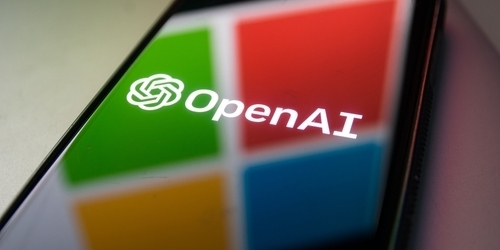Deliver us from Robots
Technology, Robotics, and AI
“If popular culture has taught us anything, it is that someday mankind must face and destroy the growing robot menace” Daniel H Wilson, Roboapocalypse
Many of the best books and films on robots have focused on things going wrong. What’s interesting is that while there are plenty of stories about evil men and women plotting to use Robots for bad purposes, the best tales are those in which good people, even if they are mad scientists, create robots for what they think are good reasons.
A ‘friendly hack’
There’s no doubt at all that as we create clever and powerful computers using Artificial Intelligence, we are taking risks. The risks of Robot technologies were underlined back in 2015 when a car was taken over by hackers. It’s important to note that this was not a ‘self-driving’ car with a Robot in control. It was an ordinary car – a Jeep Cherokee – being driven by a journalist from Wired magazine.
Now this was a ‘friendly hack’. Two hackers approached the journalist and told him they could break into the car’s controls. It would give him a great story, so he agreed. It was done to prove that the car’s system was not safe and that it needed to be revamped.
The story goes that he was driving along at 70mph in the city of St Louis, Missouri when suddenly the heating system began blasting cold air into the cr. Then the radio switched to a local hip-hop station. Then the wipers came on.
He fiddled with the controls, but they ignored him. Suddenly, the accelerator stopped working and he began to slow down. There were big trucks speeding behind him, so he decided to pull off ono the shoulder. But he was on a long bridge and there was nowhere to go. Mercifully he wasn’t killed. But he was scared.
The big point is this: when it comes to Robot technologies, good intentions can go very bad. We’ve become dependent on technology. If you lose your mobile, or there’s a failure that means you can’t get into your email or Netflix goes down for the evening, it’s annoying and even disorientating.
But here are bigger reasons to be concerned as robots become responsible for real-life activities like driving and controlling our home heating system.
The Singularity
When we hear talk about the future of Robot technology, there’s a term that gets bandied around – ‘the singularity’. It’s a label some people use for the point in the future – if it ever comes and of course it may – when Robots get smarter than people. Robots will then take over. But surely, we can all agree that humans need to stay in charge.
Are we summoning the demon?
As robots keep getting smarter and smarter, we need to make sure we stay in charge. Elon Musk, who has since donated $10m to research how we can keep Robot intelligence safe. The point is that we’re really busy trying to make something smarter than we are. Once we make it – if we are able – it could take over. As tech leaders are pointing out, if the super intelligent robot is more powerful than we are, as well as smarter, it could just decide to run the world its way.
Questions to think about
Some people think building super smart Robots is a good thing but many of the smartest humans are worried. What do you think?
BUY THE BOOK - SPECIAL OFFER – ONLY £4.99
To find out the answer to that question, why not buy yourself a copy of The Robots are Coming: Us, Them and God. For a short period of time, it’s available at a discounted price of £4.99, down from its normal price of £9.99. You can get a copy from our shop.





Share story
Deliver us from Robots